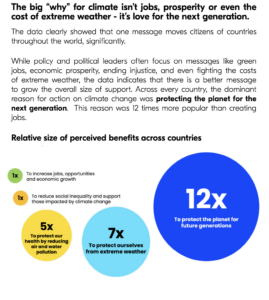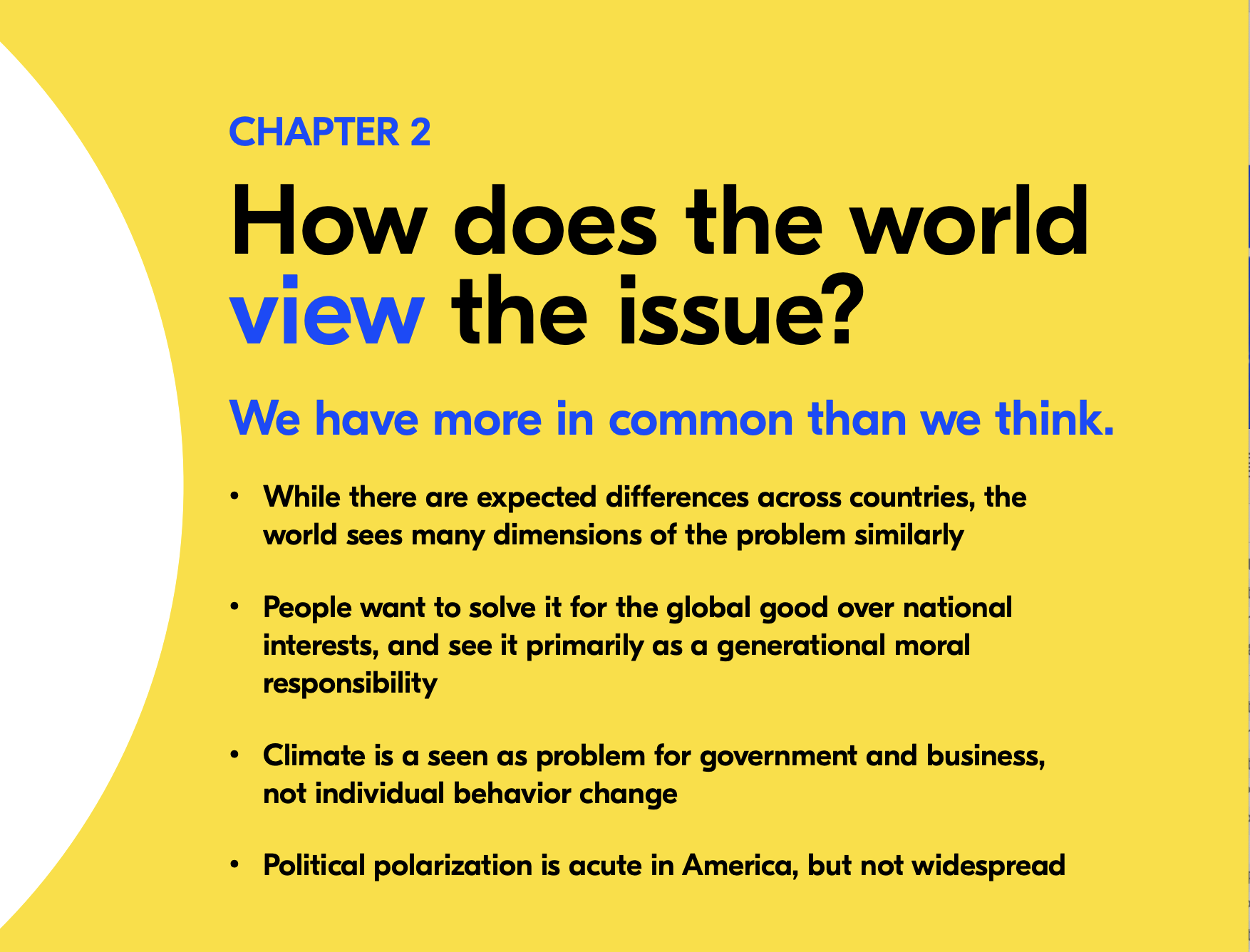By John Marshall, Founder and CEO, Potential Energy Coalition
Climate action at the scale needed to save the planet will require broad, public support — and the right messaging can make the difference. Using rigorous research and data analytics drawn from private sector marketing, we developed and tested climate messaging with nearly 60,000 people across 23 countries in North America, Latin America, Europe, the Middle East, Africa, Asia, and Australia. The results are clear: When we connect with people on a human level based on what matters to them, we can significantly increase demand for the policies that will save the planet.
Potential Energy presented a global research briefing Jan. 8 on climate messaging in partnership with the Yale Program on Climate Change Communication and the Global Strategic Communications Council. We were excited to share the results of this groundbreaking study with over 800 participants from across the climate movement.
The full report contains detailed breakdowns of how people in each country responded to messaging about a broad range of policy proposals — from building upgrades to zero-carbon transportation — but here are three key insights that we can all use to shape our communications to be more effective:
- Radical simplicity: Simple, direct messages work. We don’t have to hide the ball and talk about jobs or energy instead of climate. The data clearly show that we can connect with people about climate action using human-centered narratives.
- Abundance, not limitation: When we say the words ban, mandate, or phase out, we lose support. Instead, messages that included upgrading, setting standards, making solutions accessible, and reducing dependency performed significantly better.
- Later is too late: In every country in the study, the big universal “why” for climate action isn’t jobs, prosperity or even the cost of extreme weather, it’s love for the next generation. The message “later is too late” moves people in all countries and of all political persuasions to support immediate action on climate change — and we recommend using this framing widely.

The big “why” for climate isn’t jobs, prosperity, or even the cost of extreme weather – it’s love for the next generation.
The science is clear and the solutions are real, and with the right messaging, we can move the world to action. For more resources, please check out:
- Our full global report, which includes all charts and data from the discussion briefing recording.
- Learn more of our guidance on climate messaging in our “Talk Like a Human” playbook.
- Subscribe to our newsletter, “That’s Interesting,” to get all of our latest updates — including the upcoming release of an interactive web tool to explore country-specific data we uncovered in our global research.
If you have questions or want to connect further, please get in touch with our team at [email protected]
Potential Energy is a global, nonprofit marketing firm creating public demand for action on climate change. Graphics are from the Potential Energy Report Later is Too Late. Founder and CEO John Marshall is a professor of marketing at the Tuck School of Business at Dartmouth, Hanover, New Hampshire, USA.

